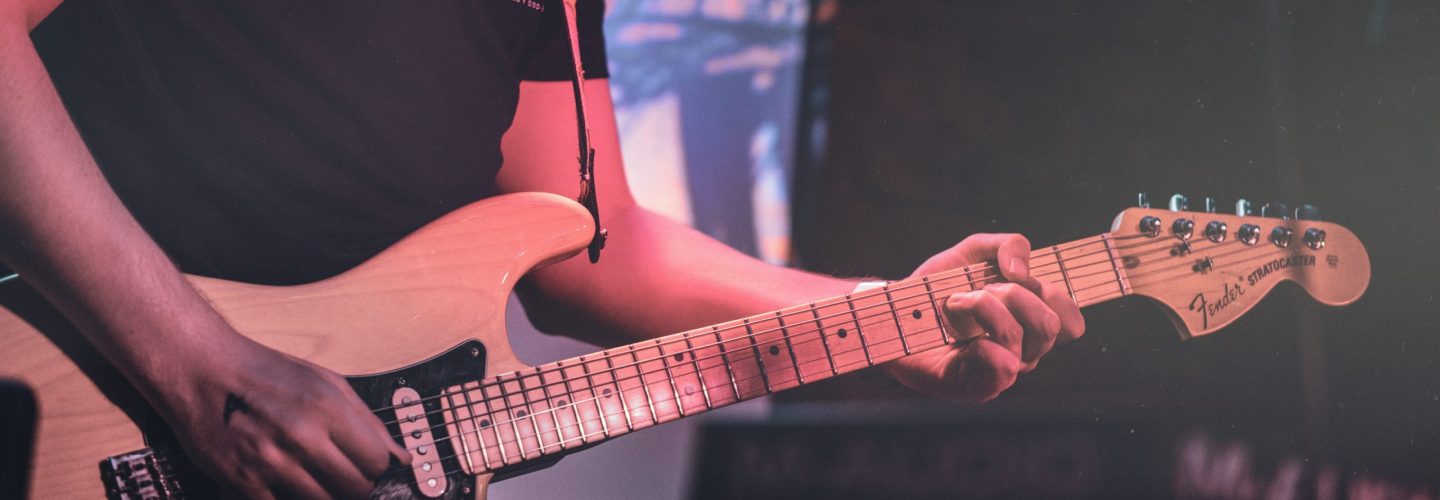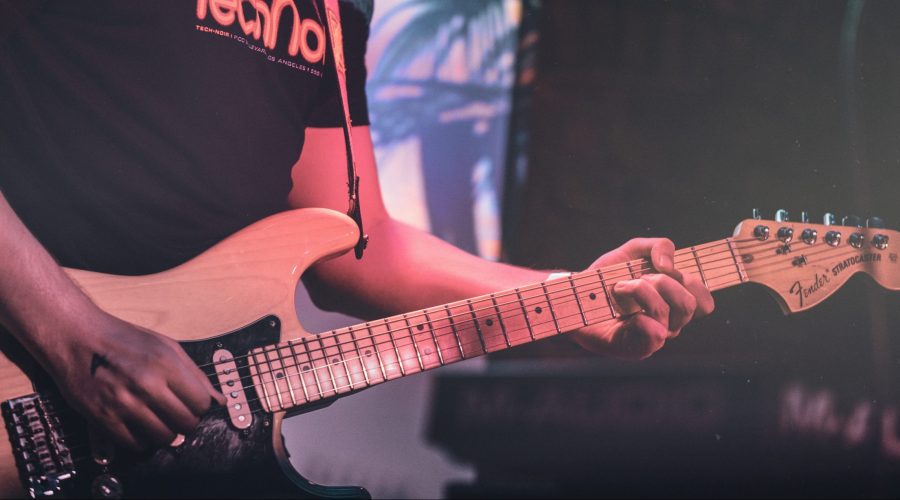Brandon is the producer moniker of UK-based composer, producer and recording engineer, Luke Jackson. Heavily influenced by synthwave and retrowave music, Brandon aims to capture the iconic sounds of 1980s pop and electronic, while throwing in a few modern production techniques to create a sound that is nostalgic, yet somewhat fresh at the same time.
Anara Publishing catches up with Brandon to see if he has any advice for fellow songwriters, as well as finding out how he likes to stay creative and up to date with trends.
Tell us about how you started making music or what initially got you into music?
Learning to play the guitar at a young age was what initially got me into music. Later, in my early teens, I discovered Digital Audio Workstations and the world of music production, which allowed me to write, record and produce my own music from home and set me on the path to becoming a working media composer and establishing ‘Brandon’ as an additional project.
What is your typical song writing process? Is it the same every time? Do you have any routines to get you in the creative frame of mind?
It quite often differs somewhat, but usually starts with an initial melodic idea for a potential hook or motif. Sometimes I’ll jump straight to a guitar or synth and begin sketching out ideas from there, performing them into my DAW (Logic Pro). On other occasions I’ll sketch out much of an idea using only the piano, and then decide upon the instrumentation and arrangement later.
Can you describe a pivotal moment in your career?
I remember, at 17, having produced an electronic track in collaboration with a pop/rap artist which saw me get my first sync on national television. I was very unfamiliar with the world of sync and the use of music in media at that point, but it opened my eyes to the ways in which music can reach new audiences, aside from the more obvious direct methods such as radio play, download/streaming services, and CDs etc.
How important do you think publishing representation is for artists and composers?
When you’re starting out as an emerging artist, very few people will be aware of you and the music you release. Publishing opens up the door to your music potentially reaching the ears of many listeners. It allows you the possibility of leveraging other entertainment mediums, such as film and television, to promote your music and get it heard. It is also the job of the publishing company to ensure that, if ever your music does get used in this way, you receive all income that you are owed. Not only does publishing help you get your music ‘out there’, having someone to deal with the business side of the music industry on your behalf frees you of any of the related stresses, meaning you can focus all your attention on making music.
Who would you say has been the greatest influence on your music?
I can’t narrow it down to just one artist, band or individual, as there have been so many that have influenced my music in different ways. With regards to my musical output as Brandon, I have been influenced by artists and composers of the 1980s, such as Harold Faltermeyer, Quincy Jones, Billy Ocean, Michael Jackson, Kenny Loggins, Bonnie Tyler and Miami Sound Machine etc.
You’re from the UK, could you tell us what are the current musical trends and how do you think your music fits these trends?
I think there are so many popular musical genres within the UK right now that its hard to keep up, but that’s a great thing! As for the more mainstream output, there has certainly been a trend for a little while now of the sounds of the 80s seeing a resurgence. Acts like Little Mix, Dua Lipa and The Weeknd (though American) are releasing tracks that draw heavily from the pop music of the 80s. This certainly delights me, as someone who leans heavily on the 80s sound and aesthetic.
Do you have a favourite use of music in TV or Film?
I distinctly remember, as a kid, loving the use of Bonnie Tyler’s ‘Holding Out For A Hero’ in the film Short Circuit 2. I’m a huge fan of Back To The Future and absolutely love Alan Silvestri’s score to that trilogy. The John Wick series has some cool original music (both score and songs) that suits the tone of the films very well. The score for Beverly Hills Cop is iconic. I also very much love the score for the video game Ghost of Tsushima by Ilan Eshkeri and Shigeru Umebayashi. Clearly, I can’t pick just one example here!
Do you have any advice for aspiring songwriters/composers?
Make the music that you feel the most passionate about and have the most fun writing, recording and producing. If you’re great at what you do and are willing to put all your effort into the music you write, it will be evident in the end result, culminating in you releasing great-sounding music. If you’ve done exactly that, then your music will surely find its audience, resonating with a group of people whom you can consider ‘fans’. On the more practical side, try to gain as much of an understanding as you can with regards to your rights as a music creator, royalties, publishing, and distribution. While it may seem like the less attractive, more business-minded side of the music industry, the more you know, the more protected you are, and there’s less chance that you’re missing out on potential income from your music.

